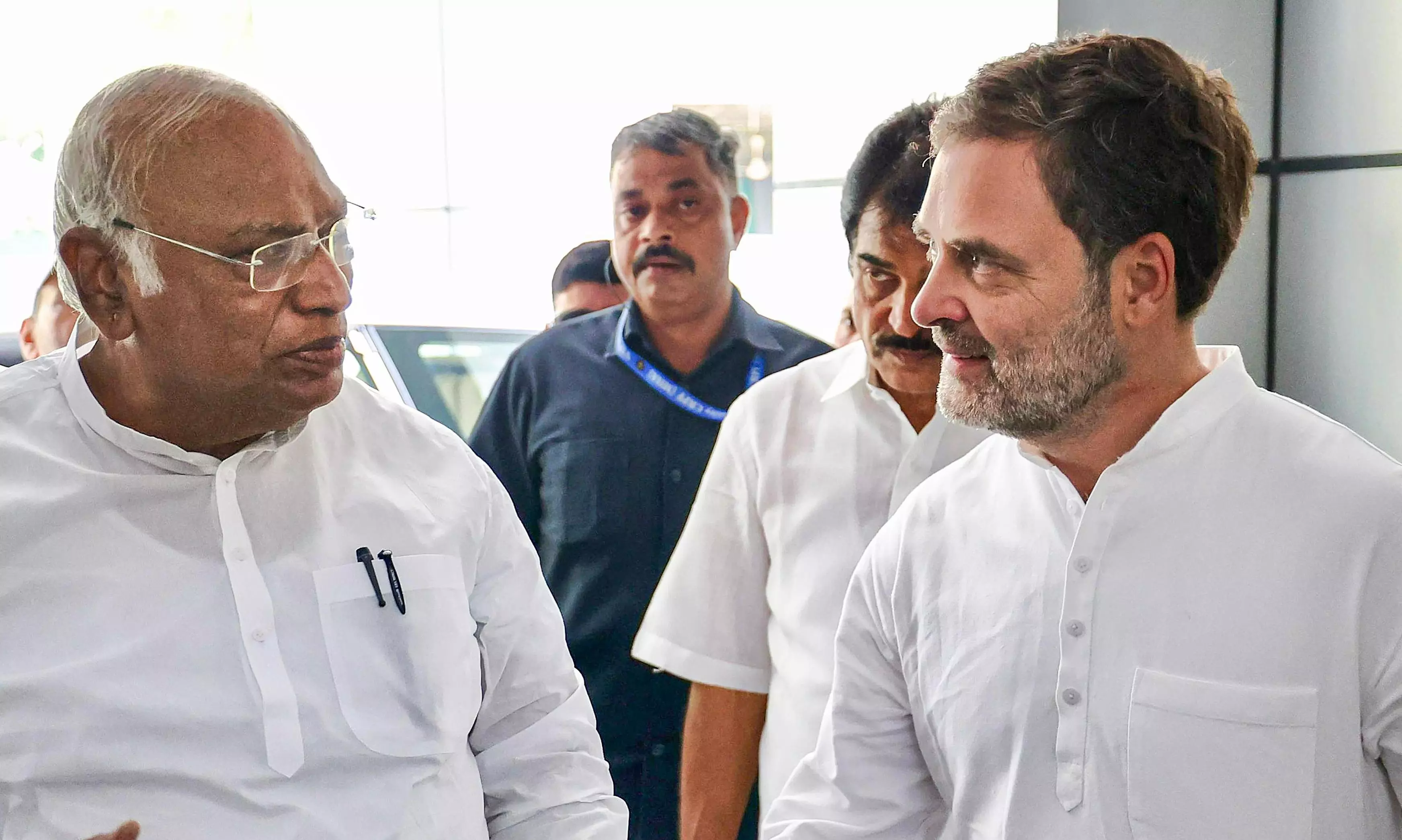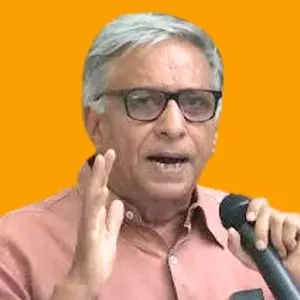
- Home
- India
- World
- Premium
- THE FEDERAL SPECIAL
- Analysis
- States
- Perspective
- Videos
- Sports
- Education
- Entertainment
- Elections
- Features
- Health
- Business
- Series
- In memoriam: Sheikh Mujibur Rahman
- Bishnoi's Men
- NEET TANGLE
- Economy Series
- Earth Day
- Kashmir’s Frozen Turbulence
- India@75
- The legend of Ramjanmabhoomi
- Liberalisation@30
- How to tame a dragon
- Celebrating biodiversity
- Farm Matters
- 50 days of solitude
- Bringing Migrants Home
- Budget 2020
- Jharkhand Votes
- The Federal Investigates
- The Federal Impact
- Vanishing Sand
- Gandhi @ 150
- Andhra Today
- Field report
- Operation Gulmarg
- Pandemic @1 Mn in India
- The Federal Year-End
- The Zero Year
- Science
- Brand studio
- Newsletter
- Elections 2024
- Events
- Home
- IndiaIndia
- World
- Analysis
- StatesStates
- PerspectivePerspective
- VideosVideos
- Sports
- Education
- Entertainment
- ElectionsElections
- Features
- Health
- BusinessBusiness
- Premium
- Loading...
Premium - Events

There are many regional parties that can interchangeably be friend or foe; Congress has to urgently fortify itself if it is to last in that marketplace
The Congress party, led by its president Mallikarjun Kharge and anchored and helmed by its most popular leader Rahul Gandhi, has a problem.
Since Rahul's resurrection as a leader of national stature in the wake of his padyatras, the party has worked against its own enlightened self-interest by only blaming the electronic voting machine (EVM) for its recent electoral nose-dive against the run of play, and not done serious introspection about the state of its organisation.
Fixing it might call for some out-of-the-box thinking. Quick fixes, for reasons of paucity of time, are sometimes required but in the Congress, for a long time, this appears to have become a substitute for genuine, desperately needed change.
The election game in Haryana
In the recent Haryana Assembly election, the EVM system as run by the present Election Commission — which is in effect nominated since the government dominates the selection panel and there is no independent voice any more after the Narendra Modi regime amended the law in this regard last December — can quite plausibly be blamed for the Congress defeat.
Also read | Congress Party: Government-in-waiting or sniper on the fringe?
A civil society organisation comprising credible individuals, Vote for Democracy, claimed that the EC counted more votes than were cast, raising suspicions of ballot stuffing.
But in Modi Raj, the poll panel addresses no doubts from the public, not even from Opposition parties. It conducts itself despotically. Bowing to the executive appears to be its main preoccupation.
In the Haryana case, too, the Congress was told sharply by the EC, using the language of political parties and not that of a neutral poll body, not to raise an 'unnecessary scare'. Indeed, the misuse of the EC seems to have become a part of the Modi regime toolkit to use at election time.
A Haryana may happen again
The trick almost worked in the May Lok Sabha election, but the Uttar Pradesh voter upended the game. This was aided in part by the RSS which didn’t, as may be expected, campaign for Modi and the BJP although the Hindutva mother outfit has an embryonic relationship with the saffron party.
The tension between the RSS chief and the Prime Minister was palpable enough.
Also read | Tweedledum and Tweedledumber: BJP, Congress barely differ on economic policy
There is every probability that the EC's services will be requisitioned by the regime for the Maharashtra and Jharkhand state elections too next month.
Need for inner-party dialogue
The Congress therefore must do what it can, in the short time remaining, to avoid tactical errors and begin the process that can assure the people that it is not averse to a visit to a health clinic.
In short, the party has got to stand up — and no pussyfooting.
As soon as the upcoming state polls are done, the Congress might do itself a favour if, in a wider inner-party consultation forum of seniors and those who were active participants in all the state polls since May, it did some plain speaking to itself, and gave out the gist in the media to reassure the public that here's an organisation with a clear head.
Dynastic succession
Unfortunately, the party continues to conduct its affairs as in earlier times, when dynastic succession was the name of the game and every word uttered was an untruth because it was done to please the leader or the leader’s family not only on the national plane but also at the state level.
Also read | How ‘giant slayer’ Geniben Thakor battled odds, broke Congress’ 10-year jinx in Gujarat
Satraps anointed by the ‘high command’ strutted about and gave their tainted recommendations to the leadership.
In such a constellation, there were few leaders who had mass contact and real popularity.
The Congress, arguably more than other parties, epitomised the role of the political bureaucrats whose job ended with pleasing the master because the master had put them in positions of authority, which became a source of profit in seen and unseen ways.
Times have changed
This has to change if the Congress is to make a go of it. Times have indeed changed.
If the party is not competitive, it can sink ingloriously as it has been doing for some years.
There are too many regional parties that can interchangeably be friend or foe, and the Congress organisation needs to urgently fortify itself if it is to last in that marketplace, especially since it is not a party that belongs to a particular caste, or religion or language or region.
Also read | UP bypolls: Behind facade of camaraderie, a raw deal to Congress by SP
Its credo is to rise above narrow affinities and sectional interests while championing the cause of the poor and simultaneously advance economic growth as well as development.
A firm Rahul Gandhi
Rahul took courage in both hands and, after the party’s 2019 defeat under his leadership, went public with the assertion that no member of his family — meaning his mother or sister — would be in the reckoning for party president.
This left the party gob-smacked. Hangers-on, fearing that their time might be up, kept up the pleading that a prominent member of ‘the family’ must remain at the helm. But, to his credit, Rahul, as party president, did not budge.
The time to show similar resolve is now. In a welcome change, at short notice, the Congress held a reasonably proper election in the circumstances, and duly elected Mallikarjun Kharge as president. The remainder of the task of revamping cries out for completion.
A different party
The pressure of the G-23 had been a goad factor in leading to the election of a new party chief who was not from the family, and indeed, not even among the hangers-on.
What’s the goad factor now? Surely it's the necessity to be organisationally, and ideologically, ready to take on the challenge of a party that fundamentally rests its case on the platform of speaking on behalf of people of the majority faith — Modi or no Modi. This is no small task.
Also read | Maharashtra and Jharkhand polls: It's virtually a do-or-die battle for INDIA Bloc
The character of the Congress is also today quite different from what it was in the post-Indira Gandhi era.
It has a very seasoned leader as its president. At the same time, it has a mass leader who has transformed the feel in the party and the country. The two are indeed working in tandem and there is so far no evidence of clashing objectives or ambitions. This is a good sign.
If the organisational deadwood is cleared, the situation can get only better.
Congress must be ruthless
For a start, the broom should be wielded starting with the personal offices of the two top leaders. That will send a signal. The two could cast the net wide across the various states to pick younger politicians with experience and initiative to be aides-de-camp at the top level.
It’s hard to find an Ahmad Patel or a R K Dhawan replacement overnight. These individuals had also taken time to mature. Now that the Congress has been in the opposition for a considerable time, hopefully there will be tested individuals around, except that no one has given them a chance. Every effort needs to be made to pick people for significant positions from outside the dynasty fold in the states.
A degree of ruthlessness is called for.
Hold a popularity contest
Circumstances made the Congress elect a non-dynasty national president, and the country breathed a sigh of relief. A stigma was removed. That spirit needs to be taken forward to the state and district levels.
Currently, in most cases, the leaders in the states have risen to the top without being adequately tested or even after failing that test. This needs to change if the party aspires to make its presence felt nationally outside the election cycle.
What better method than to make way for an open and fair popularity contest among aspirants within a time frame of a few months — and without the central leadership indicating any preferences — and then to hold an AICC session to discuss organisational and ideological matters as well as tactics and strategy?
That would bolster the Congress’ claim and ambition to be a democratic party in the proper sense. The Congress’ health is important to the national polity.
Unleash a new journey
It will remain the case that democratic parties are different from those with a totalitarian worldview in which open discussion is not tolerated, and the word from the top is unfailingly the law. Such parties do 24x7 politics. For them, each command is the law, there is no room for departures.
The Congress cannot mimic that model. If discussion is encouraged and open elections take place, the party will have built-in strength.
This is especially so if it seeks to address the questions relevant to the needy, and not pitch its appeal to the labharthy of the Modi model of politics — with the sole view of totting up votes.
The Congress has just begun its journey of the new type. It cannot afford to go back to its old, undesirable ways.
(The Federal seeks to present views and opinions from all sides of the spectrum. The information, ideas or opinions in the article are of the author and do not necessarily reflect the views of The Federal.)

